
For gamers of a certain age,
Postal
is a powerfully evocative title. Those who played it will not have easily forgotten their experience, and indeed, even those who havenít played the game (myself included until recently) will likely recognise the name due to its notoriety. At its core this is because the entire
raison d'Ítre
of
Postal
is to entertain its players through on-screen representations of unflinching gratuitous violence. Not violence in the context of a justifying purpose, or under circumstances that bear no semblance with reality, but remorseless mass shootings by a lone gunman.
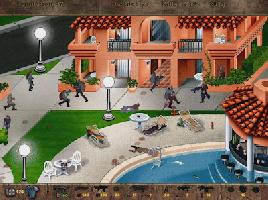
Therefore, understandably,
Postal
will not be to everyoneís tastes. However, even those who find the game hard to stomach may have some appreciation for its developers who, whether intentionally or not, pushed back against those who sought (and still seek) to stifle the artistic freedom of game creators. Developed by Running With Scissors and originally released for PC and Mac in 1997,
Postal
arrived in the midst of ill-founded outrage directed towards video games by self-appointed moral arbiters and sensationalist sections of the media. Rather than focusing their ire on any of the other obvious causes of society's ills (say massive global inequalities, persistent unemployment, or chronically underfunded public services), the narrative being pushed by some was that video games were an exceptionally dangerous source of moral corruption. Within this context,
Postal
struck a defiant tone.†
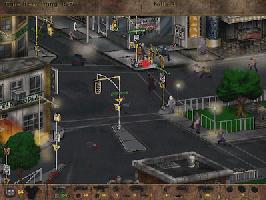
A mere 25 years on,
Postal
has now finally made its way to the Dreamcast
, thanks to the meticulous work of
Dan Redfield
, who took on the challenge of porting the game after Running With Scissors released the source code to the public in December 2016. When the original developers
jokingly asked for a Dreamcast version
to be produced, I seriously doubt that they expected this outcome: a near flawless port running at a solid 60 frames per second, packed with features, and published professionally in a physical medium. The latter aspect is down to Norwich-based WAVE Game Studios, an outfit who have quickly cemented their reputation within the Dreamcast scene since publishing their first title for the console, Senile Teamís
Intrepid Izzy
, in August 2021.
Ok, enough with the pretentious preamble, what about the game itself? For those unfamiliar with it,
Postal
is an isometric shooter, with a smattering of top-down sections, in which the player takes on the role of an unnamed protagonist (simply referred to as ĎPostal dudeí). As alluded to above, the premise of the game is quite simple: you roam from level-to-level taking down as many enemy combatants as possible. And although it isn't a prerequisite for progress, the player is presented with ample opportunities to slaughter seemingly innocent civilians too. There really isnít a great deal of plot: each stage is preceded by a cryptic and often foreboding message, presumably stemming from the pen of the main character, which along with the visuals suggests that Postal dude is gripped by some kind of madness. This lack of plot depth doesnít necessarily detract from the game thoughóthe no-nonsense approach is focused on dropping you straight into the action and keeping you on your toes at all times. This lends itself nicely to short bursts of gameplay, and the dry sense of humour that occasionally rears its head ensures that the mood isn't as depressing as the subject matter might suggest at first glance.
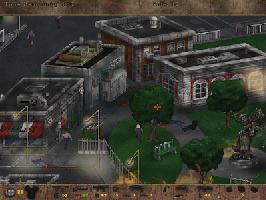
To facilitate your mission, Postal dude is equipped with a range of weapons with varying characteristics (range, damage, shot frequency), from the low-powered sub-machine gun, through to the more outlandish and spectacular napalm launcher. As with any shooter the aim is to hit your targets while avoiding taking damage. On the face of it, the gameplay of
Postal
can appear to be quite invariable and a little shallow. On the easier modes it can certainly be played in a mindless manner, with your character capable of tearing through stages while soaking up incoming fire to little effect. However, at its heart, the gameplay is rooted in strategic thinking Ė something which becomes mandatory if you wish to progress in the harder difficulty settings. Making careful use of terrain, being mindful of your inventory, and deciding when to fight and when to run, all need to be brought into play if you want to actually do well.
As
Postal
is not a brand-new title there are already a multitude of reviews out there which assess the gameplay and artistic direction of the game, so Iím unsure if there really is a need to re-hash things that have most likely already been said countless times before. To my mind, there is plenty of fun to be had with the game, despite it clearly showing its age in some respects. For the purposes of this review, I feel that the crux of the matter is that the game has been released on our beloved little white box, so, letís get down to business and focus on the Dreamcast specifics.
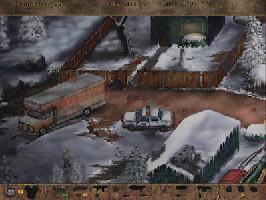
When I said the game is packed with features, I meant that sincerely.
Postal
on the Dreamcast is bursting at the seams. For starters, there are a whole host of control schemes to choose from. If you are playing with the standard Dreamcast controller you will have options that allow for variance between movement combined with aiming via the analog stick, complete with a Ďlock-oní mechanism designed specifically for this release, and a simulated twin-stick style of play with movement and aiming assigned separately to the analog stick and face buttons (partially similar to
Xeno Crisis
). The controls map well to the Dreamcast controller, feeling responsive and taking little time to become familiar with. My only minor quibble is that shifting between weapons can feel a little cumbersomeóalthough this is probably down to the inherent limitations of the Dreamcast controller compared to the gamesí native mouse and keyboard.†
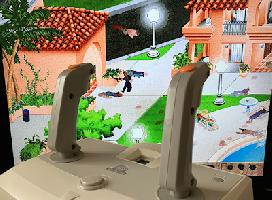
For those whose cupboard space is heavily laden with peripherals, there are also control schemes dedicated specifically to the
Brook Wingman adapter
(enabling use of modern twin analog controllers) and the
Dreamcast Twin Stick
controller, a hefty piece of kit that was released exclusively in Japan but works just fine on PAL and NTSC-U consoles. Controls using the Twin stick are actually rather well implemented, with the left stick used for player movement and the right stick used to aim. It does feel a little cumbersome initially, but in time it feels more natural to play this way, with circle strafing feeling much more achievable with two sticks rather than one. That said, the overly 'clicky' nature of the Twin Stick mechanisms does start to grate after a while...but that's hardly a fault of Postal.
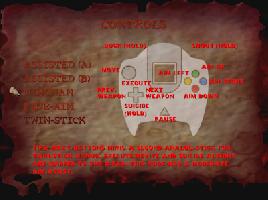
Once the player has chosen their preferred method of handling, they are presented with the opportunity to play
Postal
in its original guise or experience the extra levels that were produced for the
Special Delivery
expansion, as well as those that were exclusive to the Japanese edition of the game,
Super Postal
. That is 22 levels featuring distinctive hand-drawn terrains in total, with those from the expansions freshening things up considerably due to their different settings and style.†
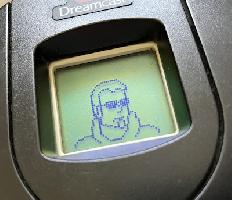
However, perhaps the most impressive feature of the Dreamcast release of
Postal
is its capability to facilitate local cooperative play by up to four players, the local aspect of which is a distinct feature implemented by Dan Redfield, never before featured in an official release of the game. Itís true cooperative play where there is a shared goal rather than a competition. Thus far I havenít been able to gather four willing participants (why do adults need to handle their meaningful Ďresponsibilitiesí and not just plough hours into couch co-op?), but my experience of the two-player variation was thoroughly enjoyable and gave the game a new lease of life after completing the campaign solo.†
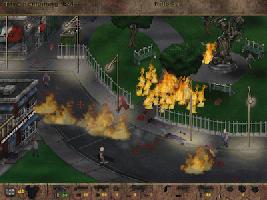
The attention to detail in ensuring
Postal
controls well on the Dreamcast, and the inclusion of an exclusive local co-op mode, are undoubtedly the standout features of this release. However, there are many other ways that developer and publisher alike have pushed the boat out, such as incorporating in-game VMU screen images, or facilitating translations to make the game playable in no less than six languages (some of these build on previously available translations, but the Dutch, Italian and Spanish versions are all brand new). To put it frankly, you donít get the feeling that this was a rush-job, which unfortunately isnít something that can be said of every indie game that sees a commercial release on the Dreamcast.
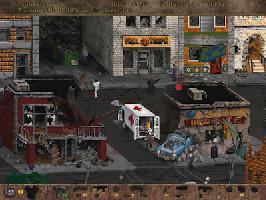
The significance of all of the above means that
Postal
on the Dreamcast is not just a novelty. Sure, this notorious title making an appearance on a commercially failed console two decades on from its official demise is what will probably be causing ears to prick up. However, it would be unfair if this is all that
Postal
on the Dreamcast is noticed for, as those who delve into it may have reason to argue that this is the best version of the game released to date. Of course, those who didnít enjoy the game the first time around, or who are put off by the subject matter, are unlikely to enjoy the Dreamcast version as the fundamentals remain the same. Yet a large section of the Dreamcast community will rightfully welcome
Postal
with open arms.
Postal is available from
WAVE Game Studios
, priced at £29.99.